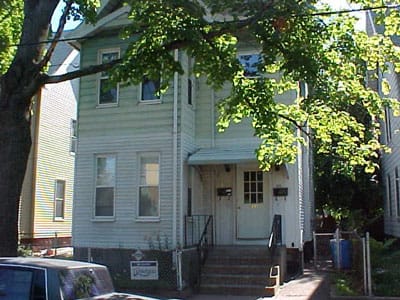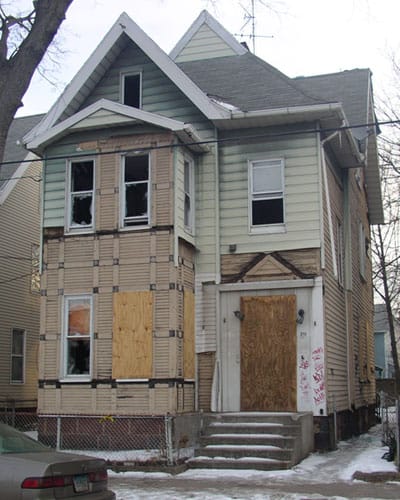Renters In the Crosshairs
Community organizers are fighting for renters facing eviction because of foreclosure.
[seealso id="1"]
The United States is in the midst of a national foreclosure crisis that threatens to wreak havoc not just on homeowners, but also tenants, urban neighborhoods, and entire cities. Community organizers and legal activists are working hard to stop it.
Over 2 million properties went into foreclosure proceedings last year, a number that experts fear could jump to 10 million in the next few years. Foreclosures aren't just pushing owners into the street. According to the National Low Income Housing Coalition, renters make up an estimated 40% of families facing eviction because of foreclosure. And because the shakiest loans are concentrated in inner cities, the impact of vacant buildings on already fragile neighborhoods can be devastating.
[seealso id="2"]
Lenders and lawmakers have been slow to respond to this growing crisis. The Obama administration's mortgage rescue plan announced in February offers limited help to some individual homeowners at risk of foreclosure, but almost completely overlooks the plight of renters in foreclosed buildings. Families facing eviction are left to fend for themselves, often with little understanding of their legal rights or other options. But an array of community organizers and legal advocates have been pushing back--organizing tenants, pressuring policymakers and lenders, and throwing wrenches into the legal system.

A 4-family house in the Fair Haven section of New Haven, CT, before foreclosure and removal of tenants through eviction and payment to move by Deutsche Bank. The pre-foreclosure price was $160,000.
Steve Meacham, a tenant organizer with City Life/Vida Urbana, a Boston-based social-justice organization, has been on the front lines of the foreclosure battle. Traditionally, CL/VU had mainly organized tenants facing eviction into unions in order to negotiate with landlords. "About a year ago, we noticed something strange," explains Meacham. "Most of the evictions were being pushed by the banks and lenders."
Now the group scans the latest foreclosure listings and goes door to door to alert tenants. They host meetings with people at risk of eviction, provide assistance and advice about negotiating with lenders, and organize demonstrations outside banks. They also work with former owners who hope to renegotiate their loans with the banks and keep renting out their properties.

The same house in January 2009. After the foreclosure and eviction of all the tenants, the house sat vacant for 17 months until its ultimate sale in December 2008 for $16,000. The house was completely gutted and stripped by vandals of any items of value, from copper pipes to aluminum siding. Photos courtesy Amy Eppler-Epstein.
Renters are usually the last to learn about a foreclosure. "Tenants will get a letter from a bank offering them a few hundred dollars if they leave in two weeks, and threatening to evict them within a month if they refuse and give them nothing," says Meacham. Those who leave usually lose their security deposits and any prepaid rent. "Most banks depend on people getting scared and leaving. When people resist, especially tenants and former owners, the banks don't know what to do with that and back off."
Thanks to the group's tactics, scores of tenants and former owners have stalled foreclosures, negotiated higher payout deals, and even forced banks to cut mortgages.
Housing advocates are also taking the battle to state and federal policymakers. In December, New Haven Legal Assistance (NHLA) threatened to sue Fannie Mae and Freddie Mac for illegally evicting tenants in buildings the federal lenders had foreclosed on. The agencies backed down and drew up new rules that stopped the practice. Now activists are pressing for the same rules to apply to private lenders.
"The current situation is lose-lose for everyone right now," says NHLA's Amy Eppler-Epstein. "Banks can make more money on a full building than an empty one that's trashed. Shareholders, neighborhoods, communities, and tenants are suffering. It's crazy and it's got to change."
